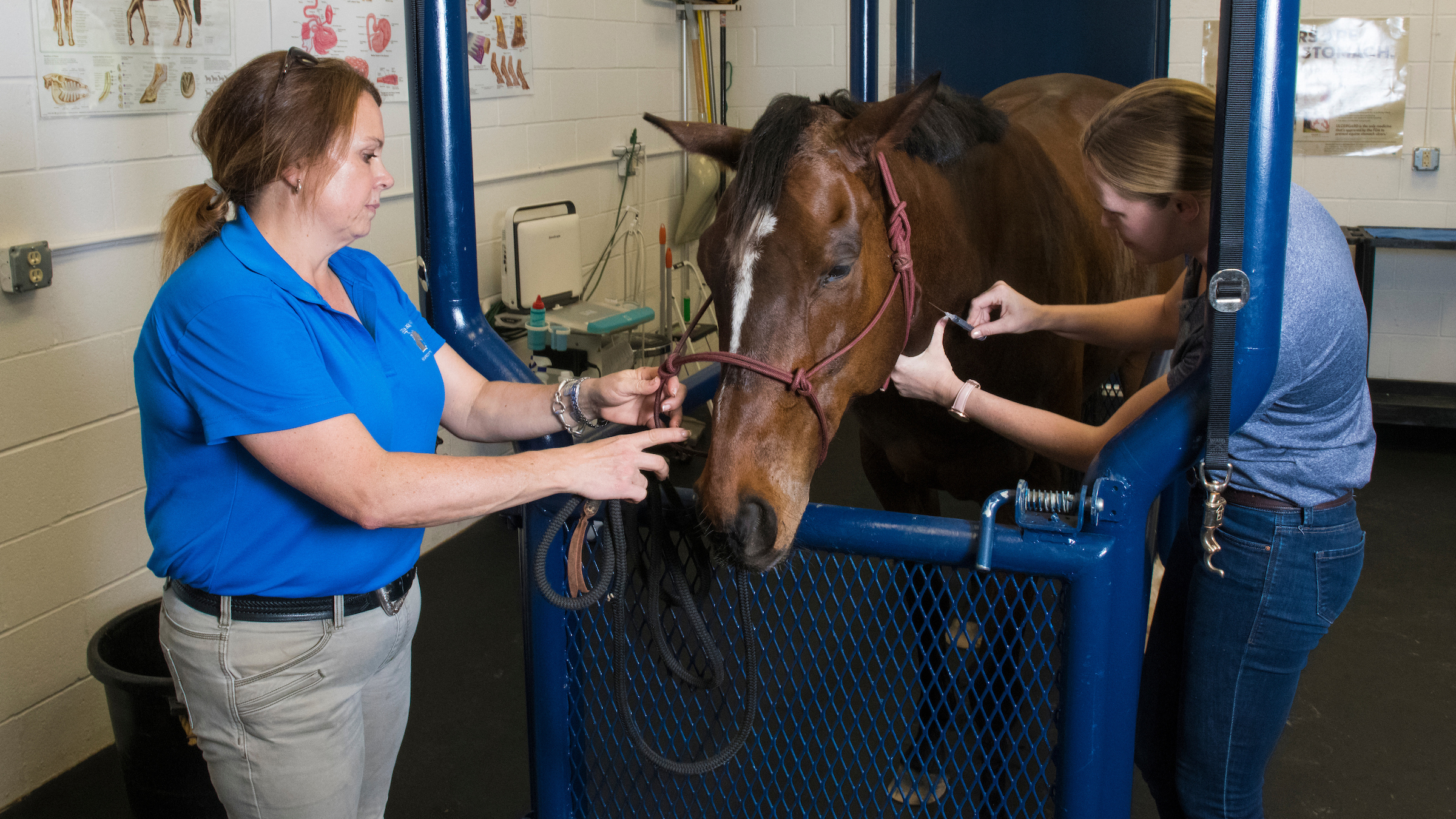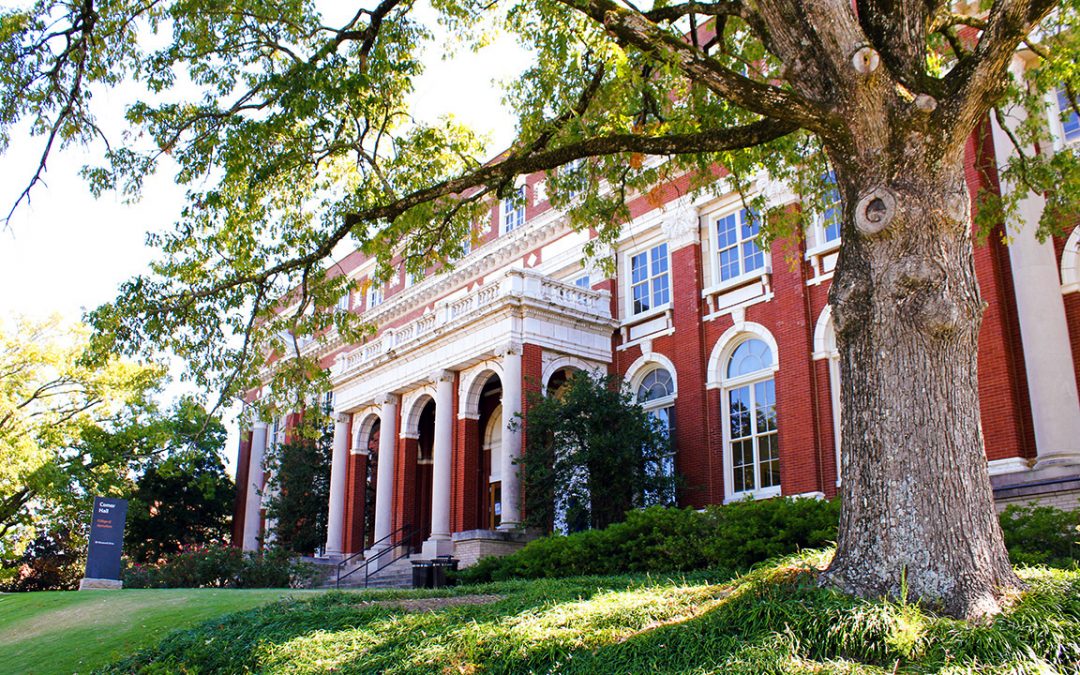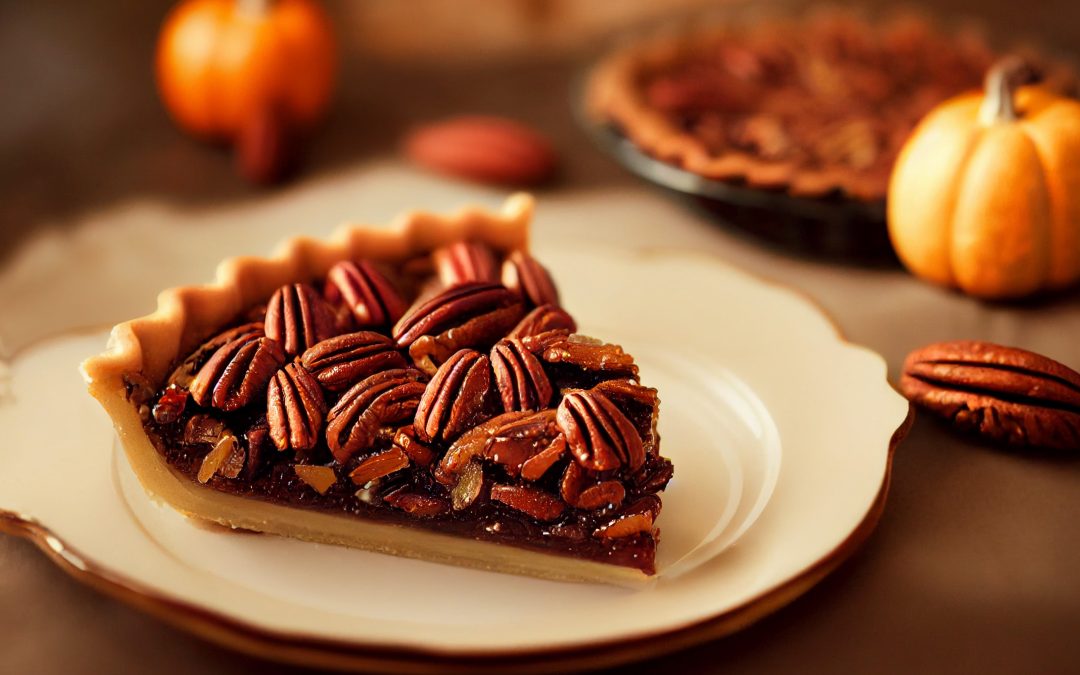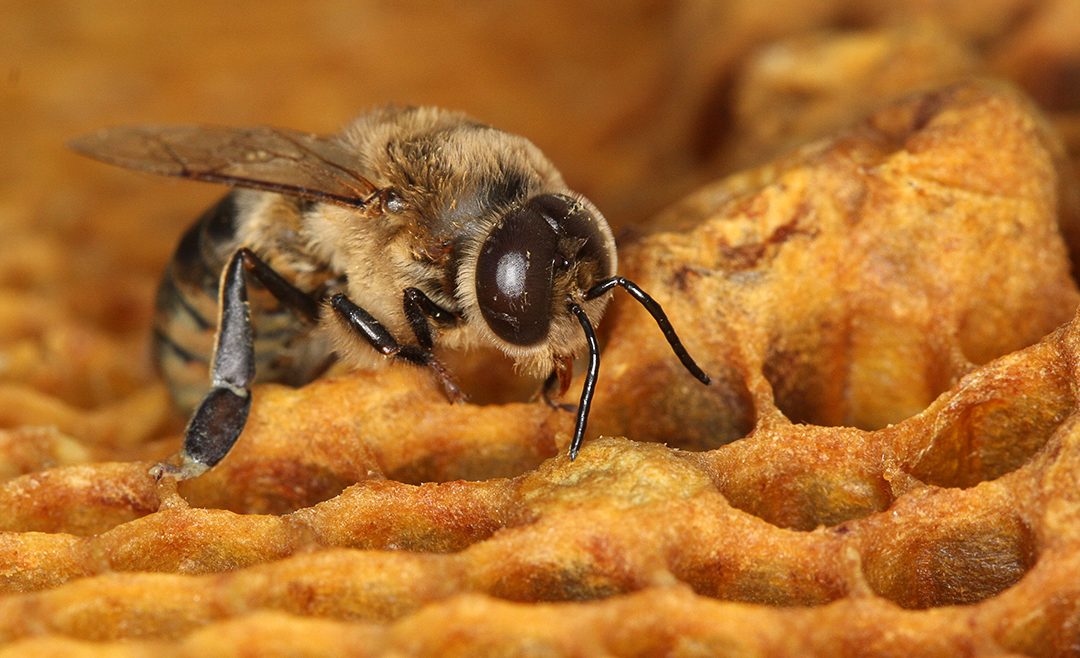Did you know the College of Agriculture provides several tracks for those interested in pursuing veterinary or professional schools? The Department of Animal Science, Department of Poultry Science, and the School of Fisheries, Aquaculture and Aquatic Sciences all offer pre-veterinary and pre-professional major options to give their students a strong foundation for professional schools.
Animal Sciences
Abby Campbell is interested in a career in veterinary medicine for the same reason most people are: a desire to help animals and people. “Like most, I chose this path because I have always had a strong desire to help both people and animals,”
I also have a passion for health care and medicine, so pursuing veterinary medicine allows me to do everything I love,” said the senior majoring in animal science (pre-vet and pre-professional). Because of the size of the Department of Animal Sciences, I believe this track has more to offer than some of the other paths and caters more to my passions.”
She credits the departments large number of clubs and its talented alumni base with creating networking opportunities and ways for students to become well-rounded applicants to veterinary programs.
“The connections and relationships I have established throughout my time here in the department will also be an asset to my future in the veterinary medicine field,” she said. “In Upchurch Hall, you are more than a student — each of my professors goes out of their way to make sure we are cared for and not another number in a classroom. This track has prepared me by giving me an up-close view of the animal agriculture industry and all the hard work it takes to run it smoothly.
“To me, being a veterinarian is knowing our large animal production just as well as we know our small companion animals while also realizing how big of a role veterinary medicine plays in food safety. Doing my degree with the Department of Animal Science has provided me a better understanding of our industry and I am prepared for many careers in the field.”
Fisheries, Aquaculture and Aquatic Sciences
Did you know a degree in fisheries could get you to vet school?
The School of Fisheries, Aquaculture and Aquatic Sciences offers an ideal undergraduate experience for future veterinarians, according to Alan Wilson, professor in the school and recent recipient of Gerald and Emily Leischuck Endowed Presidential Award for Excellence in Teaching for 2022.
“Undergraduates pursuing a degree in fisheries, aquaculture and aquatic sciences have numerous opportunities for high quality research experiences in productive faculties’ labs, courses taught by experts who are at the leading edge of their field, and access to professional development activities organized through several student-run associations that are part of national organizations, including the American Fisheries Society and the US Aquaculture Society,” Wilson said.
“Our students are often recruited into exciting and challenging positions in state and federal agencies, graduate schools at research universities around the country, and industry soon after they finish their undergraduate degree in our school.”
Poultry Science
Wyatt Holmes, senior in poultry science (pre-vet and pre-professional) said majoring in poultry science was an easy choice.
“I am from Cullman County ,which is one of the top broiler-producing counties in Alabama,” he said. “I have had a passion for poultry since I was very young, making the poultry science pre-vet option at Auburn the perfect major for me.”
Holmes said another reason he choice to major in poultry science with the intention of going on to veterinary school is the number of jobs in the industry that need exactly such a candidate.
“The demand is very high, and the jobs are endless making poultry a great industry to be in,” he said. “The Department of Poultry Science is relatively small compared to some of the other programs, so the class sizes are smaller, allowing for more individualized interactions and creating personal relationships with professors and classmates.”
Holmes credited the Poultry Science Club for bringing in industry speakers and alumni, providing valuable networking opportunities that could lead graduates to jobs upon graduation. He also said the curriculum of the poultry pre-vet program provides “all the necessary classes for admissions to veterinary and professional schools while teaching the fundamentals of poultry production, as well as going in-depth in most areas of the poultry industry.”
“Auburn is one of the few universities in the world where you can obtain a degree that is focused primarily on poultry, making students an asset to professional programs and the workforce.”





